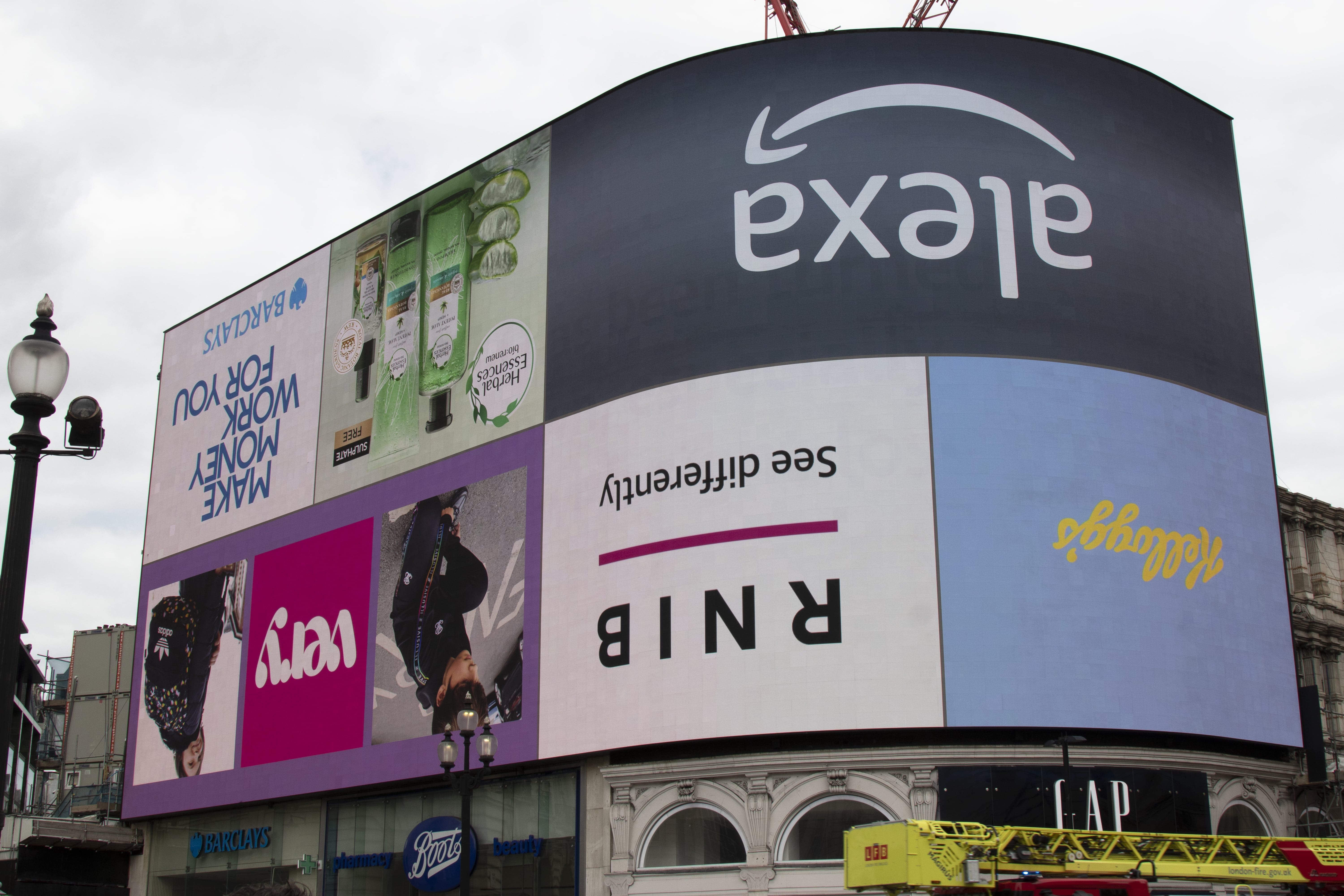Seeing the World Upside Down

Turning the messages upside down
The Piccadilly Lights in London is running upturned displays every hour as a representation of the World Upside Down campaign, launched this week by the Royal National Institute of Blind People (RNIB).
The campaign aims to make people stop and think about the challenges blind and partially sighted people might face, and to make small changes to keep everyone safe.
Eleanor Southwood, RNIB chair of trustees, said: “Blind and partially sighted people like me are used to navigating a world not designed with us in mind, but social distancing has really turned our world upside down. A lot of the strategies and tools we use to get around safely – like being guided – are not allowed under current rules, and many have been left stranded.
“We’ve heard from many blind and partially sighted people who are incredibly anxious about how to manage the situation, and we’re concerned that this will have a real impact on people’s quality of life. The ‘new normal’ risks causing a double lockdown for people with sight loss. This is not fair or acceptable.
“We’re asking the general public to help us safely social distance whilst getting on with life. By being aware of the challenges we might face, and simply asking if assistance is needed, you can help us keep our independence and stay safe. We also want the government and businesses to take action, so that measures designed to protect us are inclusive to everyone, not just to those who can see them.”
In an RNIB survey of people with sight loss, two thirds (66 per cent) of people said they feel less independent now than before lockdown, and four in five (80 per cent) said the way they shop had changed, with half as many continuing to shop independently.
As part of its World Upside Down campaign, the RNIB is working with organisations across the UK to share images of upturned items on social media to highlight the issue.
Read more about the campaign, and how to support it, here.